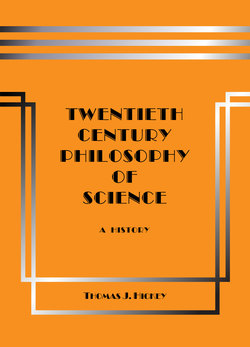Читать книгу Twentieth-Century Philosophy of Science: A History (Third Edition) - Thomas J. Hickey - Страница 38
На сайте Литреса книга снята с продажи.
3.07 Logical Quantification in Mathematics
ОглавлениеMathematical expressions in science are universally quantified when descriptive variables have no associated numerical values, and are particularly quantified when numeric values are associated with any of the expression’s descriptive variables either by measurement or by calculation.
Like categorical statements, mathematical equations are explicitly quantified logically as either universal or particular, even though the explicit indication is not by means of the syncategorematic logical quantifiers “every”, “some” or “no”. An equation in science is universally quantified logically when none of its descriptive variables are assigned numeric values. Universally quantified equations may contain mathematical constants as in some theories or laws. An equation is particularly quantified logically by associating measurement values with any of its descriptive variables. A variable may then be said to describe an individual measurement instance.
When a numeric value is associated with a descriptive variable by computation with measurement values associated with other descriptive variables in the same mathematical expression, the variable’s calculated value may be said to describe an individual empirical instance. In this case the referenced instance has not been measured but depends on measurements associated with other variables in the same equation.
Individual empirical instances are calculated when an equation is used to make a numerical prediction. The individual empirical instance is the predicted value, which makes an empirical claim. In a test it is compared with an individual measurement instance, which is the test-outcome value made for the same variable. The individual empirical instance made by the predicting equation is not said to be empirical because the predicting equation is correct or accurate, but rather because the predicting equation makes an empirical claim, which may be falsified by the empirical test.
